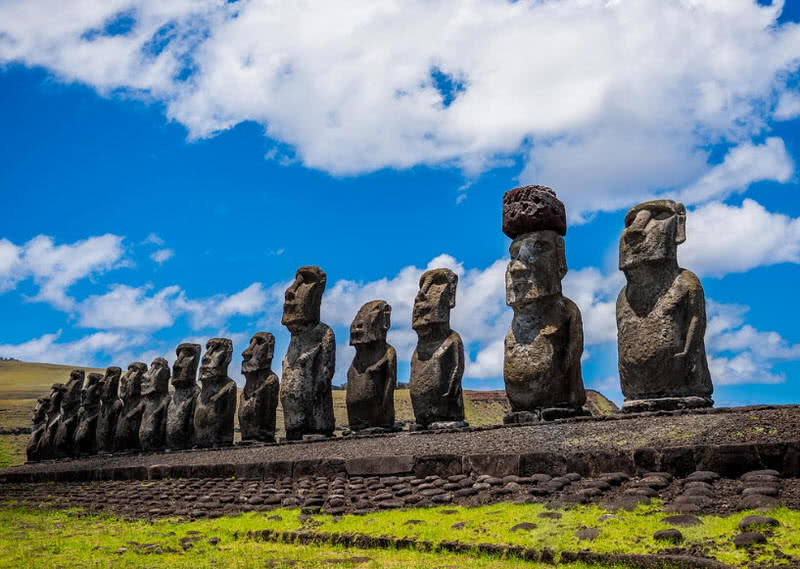Regardless of cultural or religious significance, certain places on earth possess an intense spiritous energy that can influence and uplift our emotions, inspire us, and bring us peace. Visiting these highly regarded spiritual destinations can help to refresh our minds.
Here are some fantastic spiritual destinations where you can visit and enlighten yourself.
10Spirits Bay, New Zealand
Spirit Bay is a remote location at the northern tip of New Zealand’s North Island. It holds great significance for the Māori tribe, who believe that the spirits of the departed gather under an old pōhutukawa tree before leaving for the afterlife.
The bay has two Māori names, Piwhane and Kapowairua, with the eastern end known as Kapowairua, which means “to catch the spirit.” Spirit Bay is home to various plant and bird species, including the New Zealand dotterel, Caspian tern, and the paraha vine.
9Stonehenge, United Kingdom
The construction of Stonehenge involved significant physical labor, whether willingly or unwillingly. The presence of over 64 cremated bodies in the area suggests the existence of a burial ground in the past.
Top 10 Hidden Paradises in the World
8Delphi, Greece
This legendary tale reflects the progression of religious beliefs towards the veneration of natural laws and order, symbolized by Apollo. Today, more than thousands of people worldwide come to meditate at the ancient Oracle.
7Sedona, Arizona, United States
Native Americans believe the other dimensions are more transparent and accessible, enhancing the energy in these specific spots. Sedona brings self-awareness and spiritual healing. It is a popular destination for meditation and those seeking guidance and peace.
6Nazca Lines, Peru
The Nazca Lines are a collection of large designs etched into the soil of the Nazca Desert in southern Peru. While most lines are straight, there are also figurative depictions of animals and plants. Do you know the true story behind these mysterious designs?
Many hypotheses exist regarding the origin of these lines, including the belief that the Nazca created them, lived in the sky to depict constellations, or by extraterrestrial beings. Others argue that the lines connected religious sanctuaries and water sources. However, all scholars agree that the Nazca culture created the Nazca Lines.
5Ubud, Bali, Indonesia
The heart and soul of Bali lie in Ubud, a legendary spiritual space offering visitors a blend of ancient wisdom and contemporary charm. Popularized through Elizabeth Gilbert’s book “Eat Pray Love,” it has become a spiritual destination for those seeking self-discovery and love.
In mythology, Buddhist priest Rsi Markandeya envisioned Ubud as a promised land, building temples and spiritual centers to continue his mastery of yoga and spirituality. Located in the highlands with tropical jungles and natural surroundings, Ubud offers an ideal setting for prayer, meditation, and yoga practice.
4Uluru, Australia
Uluru, also known as Ayer’s Rock, is a stunning sandstone in the heart of Australia. It is a place of spiritual significance and holds cultural and historical value. Visitors can explore the area’s rock caves, springs, waterholes, and ancient paintings. Uluru’s appearance changes throughout the day and year.
It appears in a bright red glow at dawn and sunset, caused due to iron oxide in the sandstone. A trip to Uluru can be a transformative experience, offering peace, tranquility, and a deeper connection to something greater. Visitors can participate in a wellness retreat, an intimate sunset tour, or a soulful evening meal in the serene silence of the Red Centre.
3Varanasi, India
Varanasi, or Benares, is India’s cultural and religious heart and holds immense cultural and religious value for Hindus. Positioned on the Ganges river, this spiritual destination is crucial in Hindu pilgrimage, death, and mourning traditions.
Devoted Hindus believe that dying in Varanasi can help one escape the endless cycle of death and rebirth. However, if one cannot die in Varanasi, immersing their ashes in the Ganges can bring salvation. Varanasi’s cultural significance dates back to ancient times. It was a hub for Hindu devotion, pilgrimage, mysticism, and poetry contributing to its cultural significance.
2Machu Picchu, Peru
They valued all religions equally. Machu Picchu reflects this belief in the balance and symmetry of Inca culture. The site includes caves that once held mummies and a sanctuary for religious worship. Visitors can experience the spirituality of the Inca people throughout the site, extending beyond its surroundings and leaving visitors with a transcendent feeling.
Related Articles
1Angkor Wat, Cambodia
Located in Cambodia, Angkor Wat is a temple complex that holds the Guinness World Record for being the largest religious structure in the world. Its design specifications resemble Mount Meru, believed to be the home of devas in Hindu mythology. Angkor Wat is one of the most well-preserved temple sites and continues to be an important religious center.
The temple features a combination of classical Khmer architecture, adorned with numerous devatas and extensive bas-reliefs, creating a harmonious structure. Visitors often report feeling a heightened sense of spirituality and awe in the presence of these temples.




